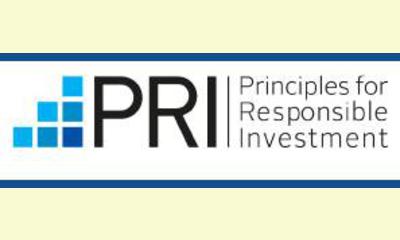|
|
Harvard Joins Principles for Responsible Investment
un article par Robert Kropp, Social Funds (abridged)
Harvard's endowment is the first in the United
States to join the global network of sustainable
investors; the university also announces it will
report its greenhouse gas emissions to the CDP.

click on photo to enlarge
Last year, Harvard was criticized by the student
divestment movement for refusing to join the growing
number of college and university endowments that are
divesting their holdings in fossil fuel companies.
Despite strong support from students at the
university for the action, Harvard President Drew
Faust said, “As shareholders, I believe we should
favor engagement over withdrawal. In the case of
fossil fuel companies, we should think about how
we might use our voice not to ostracize such
companies but to encourage them to be a positive
force both in meeting society’s long-term energy
needs while addressing pressing environmental
imperatives.”
Sustainable investors have come down on both sides
of the divest vs. engage debate, but what might
have been most troubling about Faust's position
was her concept of fiduciary duty. “The funds in
the endowment have been given to us by generous
benefactors over many years to advance academic
aims, not to serve other purposes, however
worthy,” she wrote. “As such, we maintain a strong
presumption against divesting investment assets
for reasons unrelated to the endowment’s financial
strength and its ability to advance our academic
goals.”
If, for example, ExxonMobil, which recently
reported that “Any future capping of carbon-based
fuels to the levels of a 'low-carbon scenario' is
highly unlikely due to pressing social needs for
energy,” is wrong about its position on stranded
assets, then an enlightened view of fiduciary duty
would seem to support divestment.
Nevertheless, Harvard has taken steps to address
the concerns of its stakeholders. Also last year,
Harvard Management Company, the endowment's
investment manager, announced the hiring of
Jameela Pedicini as its first vice president for
sustainable investing. Pedicini was formerly
employed by the California Public Employees’
Retirement System (CalPERS), a leading pension
fund with a long-standing commitment to
sustainable investing.
This week, Harvard took further steps toward a
philosophy of sustainable investment, when it
announced that it will become the first university
endowment in the US to become a signatory to the
United Nations'
Principles for Responsible Investment (PRI).
As readers of SocialFunds.com surely now, PRI is
an international network of sustainable investors
committed to the incorporation of environmental,
social, and corporate governance (ESG) criteria
into their investment strategies.
“Harvard University is the first US endowment to
publicly commit to investing its funds in a more
responsible and sustainable manner using the PRI’s
voluntary framework, and we are thrilled to
welcome them to the organization,” said Fiona
Reynolds, Managing Director of the PRI.
“Sustainable investment is one of the world’s
fastest-growing investment trends, and Harvard’s
leadership provides a model for other US
universities” . . .
(Thank you to Janet Hudgins, the CPNN reporter for
this article.)
|








|
DISCUSSION
Question(s) liée(s) à cet article:
Despite the vested interests of companies and governments, Can we make progress toward sustainable development?
* * * * *
Commentaire le plus récent:
[responding to CPNN article The film 'Demain', a manifesto?
Yes initiatives from the grassroots are important and necessary which will have a direct impact on the present and the future. But there are governments like India which are conscious of over exploitation of the earth’s resources and are taking suitable policy measures and also taking legal action against the exploiters.
We must emphasize public transportation and reduce our dependence on individual cars even though the auto industry will not like this.
Otherwise it is not demain but aujourdhui — the problems are there for us to see.

|
|









